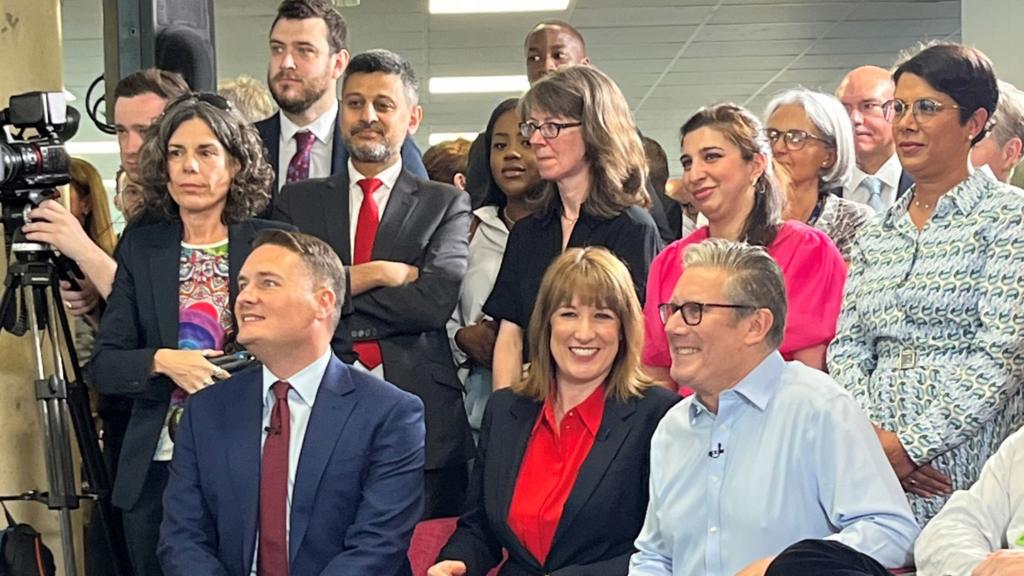Rachel Reeves has characterized Wednesday as “a tough day” during which she was “clearly upset,” marking her first interview since being seen in tears in the House of Commons.
Refraining from detailed explanation, she cited a “personal issue,” adding, “Today’s a new day, and I’m just cracking on with the job.”
The Chancellor’s remarks followed a surprise appearance alongside Sir Keir Starmer to unveil the government’s 10-year plan for the NHS.
Government borrowing costs initially saw an increase following Reeves’ emotional display during Prime Minister’s Questions, which was compounded by Sir Keir’s initial hesitation to guarantee her continued tenure.
The rise was partially reversed after Sir Keir affirmed his alignment with the Chancellor, stating she would remain in her position “for a very long time to come.”
According to one analyst speaking to the BBC, the initial market reaction reflected concerns that Reeves’ departure could weaken control over government finances.
Will Walker Arnott, head of private clients at Charles Stanley, remarked on the BBC’s Today programme, “It looks to me like this is a rare example of financial markets actually enhancing the career prospects of a politician.”
In an effort to project unity, the Chancellor unexpectedly joined Sir Keir and Health Secretary Wes Streeting at an East London hospital to detail plans for new neighborhood health centers.
Addressing staff, Reeves was seen smiling and later shared a hug with the Prime Minister.
When questioned by broadcasters about her tears in Parliament, Reeves stated: “My job as Chancellor at 12 o’clock on a Wednesday is to be at PMQs next to the Prime Minister, supporting the government, and that’s what I tried to do.”
“I think all your viewers have had tough days, for personal reasons, for whatever reasons. I happened to be on the camera when I had a tough day.”
She affirmed her commitment to the role of Chancellor and, when asked about the Prime Minister’s initial lack of unequivocal support, replied: “People can see that Keir and me are a team.”
“We fought the election together, we changed the Labour Party together so that we could be in the position to return to power, and over the past year, we’ve worked in lockstep together.”
During the event, Sir Keir praised his Chancellor, telling the audience: “I think it’s just fantastic that she is here.”
He noted that decisions made by Reeves had enabled the government to “invest record amounts in the NHS.”
When asked if he was aware of his Chancellor’s distress in the House of Commons, Sir Keir stated that he “hadn’t appreciated what was happening” as he was “literally up and down” answering questions.
“No Prime Minister ever has had side conversations in PMQs. It does happen in other debates when there is a bit more time, but in PMQs it is bang, bang, bang, bang.”
“I was probably the last to appreciate anything else going on in the chamber.”
He attributed the incident to “a personal issue” and stated, “I am certainly not going to say anything more about that.”
Speculation regarding Reeves’ future had grown following Labour rebels’ success in forcing the government to concede on some of its benefits changes, resulting in a £5 billion gap in the Chancellor’s spending plans.
To adhere to her self-imposed borrowing rules, she may now need to consider public spending cuts or tax increases in the autumn Budget.
When asked about potential tax increases, Reeves declined to “speculate” but added, “Of course, there is a cost to the welfare changes that Parliament voted through this week, and that will be reflected in the Budget.”
Indicating her commitment to fiscal constraints, the Chancellor stated that “stability that we’ve been able to return to the economy… is only possible because of the fiscal discipline which is underpinned by the fiscal rules.”
Reeves’ primary rules include not borrowing to fund day-to-day public spending and reducing debt as a share of UK economic output by 2029/30.
In her speech, she also asserted that the increase in NHS spending would not “have been possible” without the measures she implemented in last year’s Budget.
Speaking to BBC Breakfast on Thursday, shadow chancellor Mel Stride expressed empathy for Reeves, noting that the incident highlights that politicians “are all human beings.”
However, he also accused the government of “serious mistakes” and “bungling and chaos,” predicting that these would lead to tax increases in the autumn.
Rachael Maskell, a Labour MP who spearheaded efforts to block the government’s benefits bill, told the BBC on Wednesday that the government should “look at those with the broadest shoulders” when seeking funds.
“We do need to look at things like a wealth tax or equalisation of capital gains tax,” she said.
On Thursday, the government announced that its Universal Credit and Personal Independence Bill would be renamed the Universal Credit Bill, following the removal of significant measures related to the personal independence payment.

